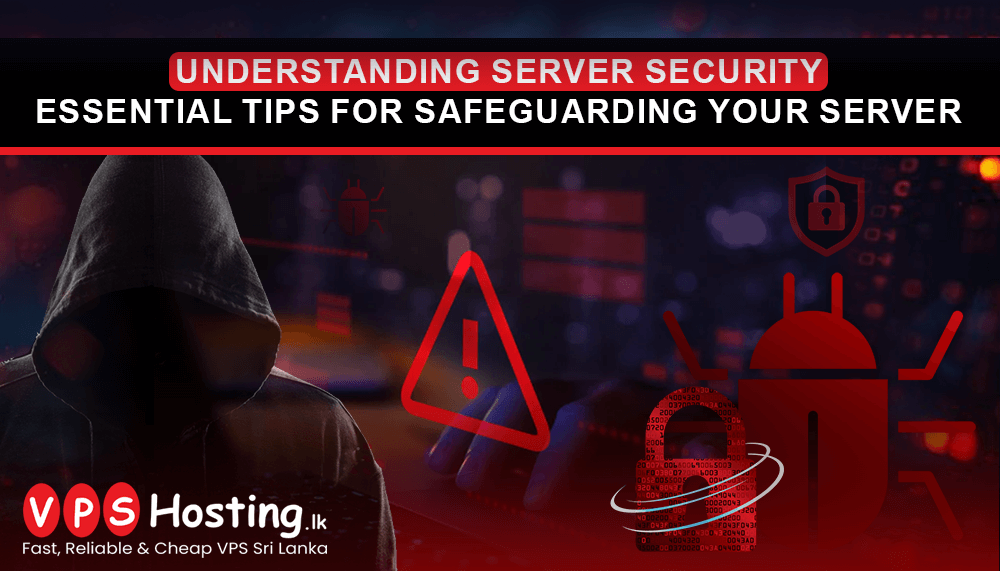
Understanding Server Security: Essential Tips for Safeguarding Your Server
Introduction
Servers form the backbone of digital infrastructure, hosting data, applications and services that run businesses and websites all over the world. Securing your server has never been more critical as cyber threats evolve. Setting up a robust security framework-from enterprise-level data centers down to personal web servers-is necessary for sensitive data protection and maintaining reliability. The following guide illustrates clearly and provides actionable tips on how you can improve the security of your server.
What is Server Security?
Server security involves safeguarding your server from unauthorized access, breaches, and cyberattacks. It encompasses measures like physical security, network defense and software hardening to ensure data integrity and operational stability.
Common Threats to Servers
Servers are susceptible to many perils that could compromise their operational effectiveness and security. The major ones include:
- Malware and Ransomware: Malicious software that encrypts data or disrupts the operation of the server.
- DDoS Attacks: Overwhelming a server with traffic, rendering it inaccessible to legitimate users.
- Insider Threats: Employees or collaborators abusing their access privileges.
- Software Vulnerabilities: Bugs or flaws in server software that hackers exploit.
Key Components of Server Security
- Physical Security: For on-premise servers use restricted access, surveillance systems, and secure server racks.
- Network Security: Firewalls, secure network configurations and monitoring tools are employed.
- Software Security: Regular updates and patches to fix vulnerabilities in server software.
Best Practices for Server Security
- Update Software Regularly: Keeping your server software updated closes potential security gaps.
- Implement firewalls: Firewalls block unauthorized access and filter both incoming and outgoing traffic.
-
Implement strong passwords: Strong passwords reduce brute-force attack chances.
-
Enable 2FA: Adding an extra layer of protection beyond just passwords.
Advanced Security Measures
- Use VPNs: VPNs encrypt data to ensure secure remote access.
- Conduct Security Audits: Test the security of your server from time to time for any kind of vulnerability.
- Access Control: Permit role-based access to decrease unauthorized possibilities.
The Role of Backups in Security
Data backups are the most essential things in recovery after breaches or failures. Design a backup strategy that includes:
- Regular Backups: Daily or real-time backups for critical systems.
- Storage Security: Store data encrypted and offsite.
- Backup Testing: Backup regularly to ensure the most reliable restores.
Automation of Server Security
With automation, human error goes down and efficiency improves. Tooling to use:
- Routine Updates: Schedule routine patching of server software.
- Threat Detection: Make use of AI-powered systems to provide real-time monitoring and responses to threats.
- Backup Scheduling: Schedule backups at routine, consistent intervals.
Cloud Servers vs. On-Premises Servers: Which One Is Safer?
There is no straightforward answer, as both types of servers have special concerns regarding security:
- Cloud Servers: A cloud server enjoys the provider's enterprise-level security management but rests on shared infrastructure.
- On-Premises Servers: These provide full control but require in-house skills and resources to ensure strong security.
How VPSHosting.lk Ensures Security to Its Users?
VPSHosting.lk is implemented with high-level security attributes aimed at securing the servers and the clients. These include:
- RAID Arrays: Redundancy for hardware failure protection.
- TIER III Data Centers: Very highly available uptimes of 99.98%.
- 24/7 Monitoring: To monitor the situation in light of quick detection and quick fixing.
Case Studies: Real-Life Security Breaches
Security breaches in servers are pretty interesting to analyze. The cases of DDoS attacks on major platforms raise quite a few questions about proactive security measures, solid defenses and incident response planning.
Preparing for Emerging Threats
The landscape of cyber threats keeps evolving with new technologies and techniques evolving. Stay updated on trends to watch, such as AI-powered attacks and prepare your defenses in time. Such training, updates and consultation with experts are to be done on a continuous basis.
Employee Education About Server Security
Employees are critical to maintaining server security. Train them on:
- Recognizing phishing scams and social engineering.
- Following data handling protocols.
- Using secure passwords and 2FA for all accounts.
Monitoring and Management Your Server
Use monitoring tools that record activities with respect to server health, CPU usage, disk space, network traffic and so on. Regularly go through the logs for any suspicious activity and set up automated alerts as response actions to real-time threat factors.
Future of Server Security
Some future server security will depend upon some more advanced technologies such as:
- AI and Machine Learning: For intelligent threat detection and mitigation.
- Behavioral Analytics: These solutions monitor abnormal user activity.
- Blockchain: In blockchain, it first checks for secure data and then creates backups in a decentralized manner.

Conclusion
Server security is one endless process. It is vigilant, proactive and suitably tooled. The strategies suggested in this guide help you seriously build up the defense of your server and protect emerging threats from your data.
If you want to learn more about server security and best practices, please visit our blog at Security Best Practices .
FAQ: Server Security
Q1: What is the first step to secure a new server?
- Change default login credentials and update all server software to prevent unauthorized access and address vulnerabilities.
Q2: How often should I back up my server data?
- Perform daily or real-time backups for critical systems. Regularly test backups to ensure they are functional.
Q3: Can antivirus software protect my server completely?
- No. While antivirus software is essential, combine it with firewalls, intrusion detection systems, and regular updates for comprehensive protection.
Q4: How does a firewall enhance server security?
- Firewalls monitor and control incoming and outgoing traffic, blocking unauthorized access and preventing many forms of cyberattacks.
Q5: What should I do if my server is compromised?
- Disconnect it from the network immediately, identify the cause, restore data from backups, and reinforce security measures to prevent future incidents.